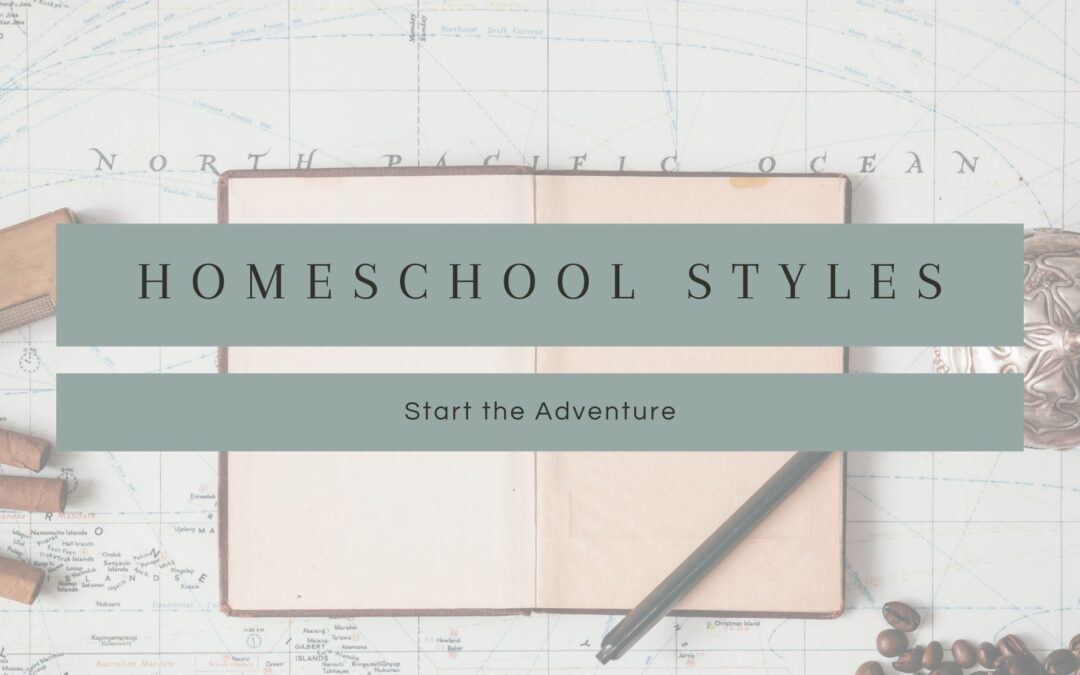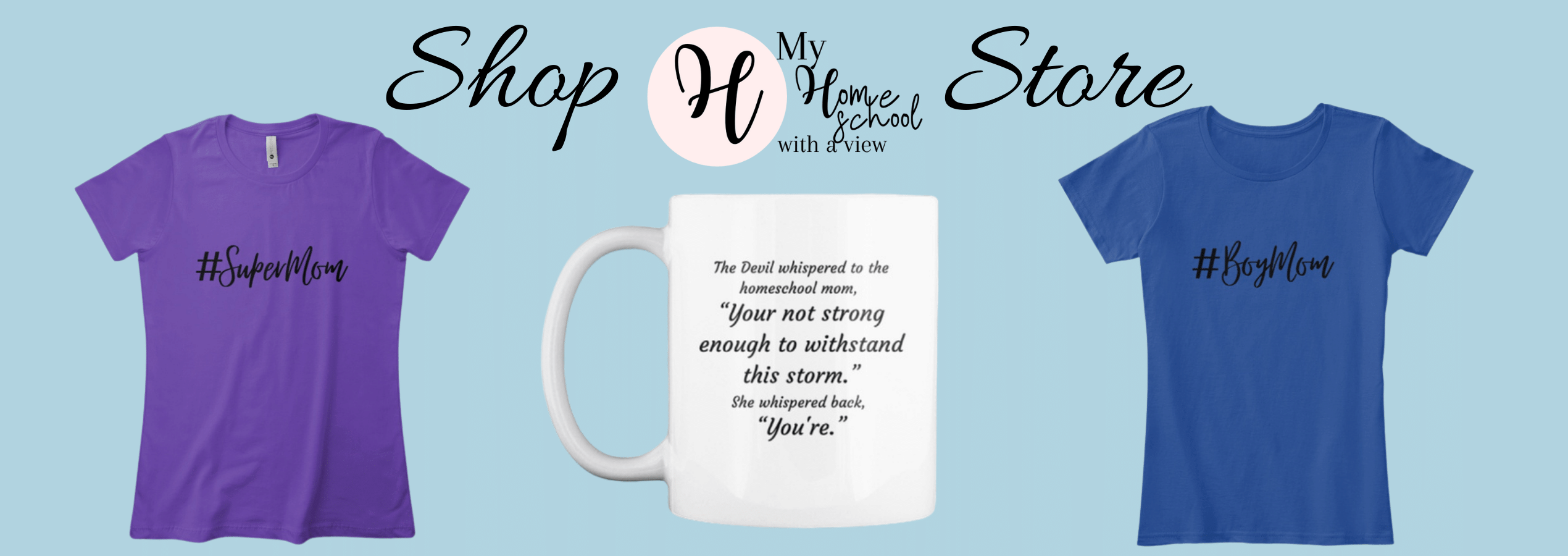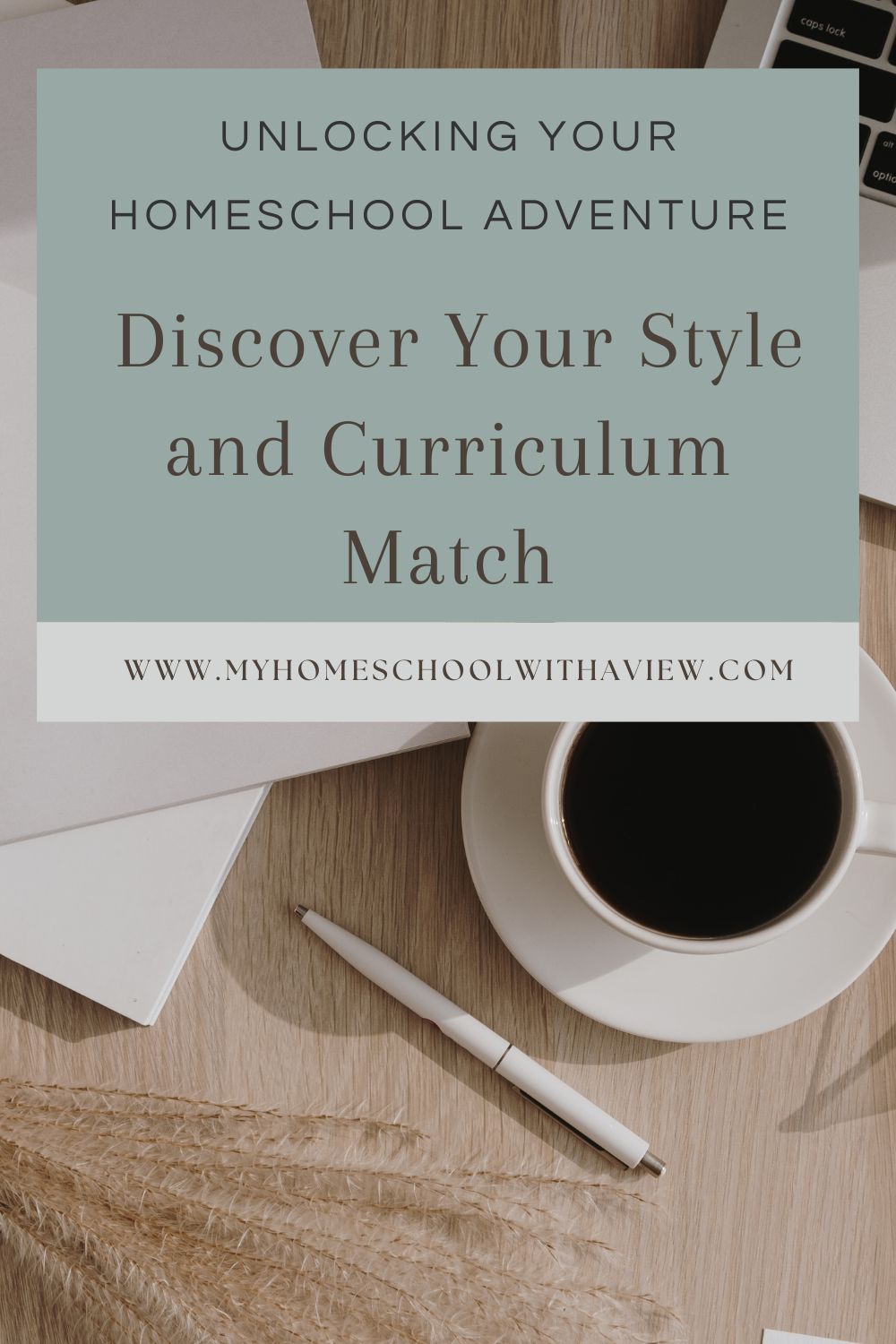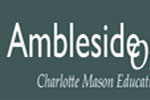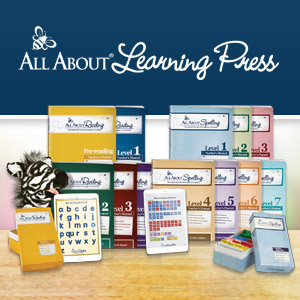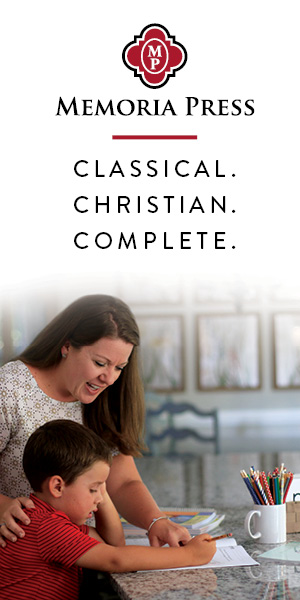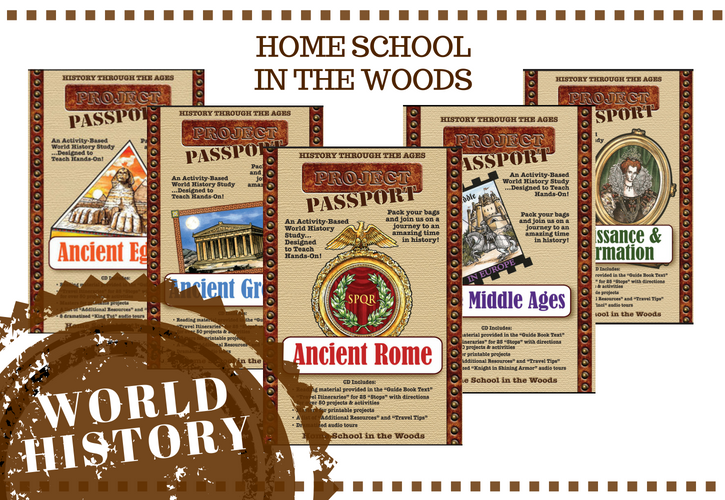When starting your homeschool adventure, curriculum shopping is often the most fun and often overwhelming part. When choosing curriculum, I advise you to start with finding your homeschool style. But, you may be thinking, what the heck is a homeschool style anyway.
Never fear, I am here to walk you through the different homeschool styles and how to find the curricula to match. It often takes quite a bit of trial and error to find what is truly going to work for you and your kids. There are several factors and you have to allow for growth in both you and your children.
This post contains affiliate links and My Homeschool with a View, LLC participates in the Amazon Associates program. If you make a qulaifying purchase through our links, we earn a comission at no additional cost to you . Thank you for supporting this site! You can read my affiliate and advertising disclosure here.
Why You Should Find Your Homeschool Style
The purpose of finding your style is to give you a place to start when it comes to weeding through all of the options for curriculum, co-ops, etc. Remember, finding your homeschool style isn’t a marriage that comes with a lifetime commitment. And you may find a style that resonates with you, but not with one of your kids and that’s okay.
You can often modify or mix and match homeschool styles to find a happy balance of what you enjoy teaching and your kids enjoy learning.
The Main Homeschool Styles
There are a few main homeschool styles that every method or curriculum will fall under. There are, of course, variations and sub-categories but they all pretty much fall under these main ones.
Don’t worry if this seems confusing at first, you will be an old pro before you know it.
Literature Based Homeschooling
As the name suggests, literature based homeschooling uses rich literature as the educational foundation. Often subjects like English and history will be integrated in Literature Based Homeschooling.
I incorporate a lot of literature based homeschooling at My Homeschool with a View. My oldest especially loves connecting school subjects through great books. Here are my favorite literature based curricula.
Sonlight – If you are a new Sonlight customer, get $10 off your very first purchase by using my link!
Charlotte Mason Homeschooling
The Charlotte Mason homeschool style I believe falls under literature based, but it is popular enough that it gets its own category. This method utilizes rich literature or “living books” to spread an educational feast of many subjects including art, composer, hymn and nature studies.
The foundation of this philosophy is respecting the child as a whole person while working to develop good lifelong habits. There is a bit of a natural learning approach to the CM method, where the child isn’t pushed to learn too early. Charlotte Mason was a turn of the century educator who didn’t believe children should begin formal academics before age seven.
Ambelside Online is a free comprehensive resource to guide you through Charlotte Mason Homeschooling.
Traditional Homeschool Style
Traditional homeschooling looks a lot like the classroom education most of us grew up with. This can be a comfort zone for new homeschoolers because it feels very familiar. Even I turned to the traditional style when I first began homeschooling.
The traditional homeschool style involves textbooks or workbooks, and is pretty much you read from a text and you answer questions or write a paragraph based on the text. Subjects are generally in separate texts and not integrated.
Traditional homeschool gets a little bit looked down upon in today’s homeschool climate. A lot of people view it as a product of the school system they are trying to flee from. Let me say this, there is absolutely nothing wrong with this style of homeschooling. If this is what you are comfortable teaching and your kids learn well, then that is a worthwhile reason to use traditional methods.
Homeschool Classical Education
Classical Education was the “it” homeschool style when I began homeschooling. In fact, it was the style I started with, then realized I wasn’t a classical homeschooler.
Classical Education is based on the three developmental phases of the trivium. The Grammar stage covers early elementary and focuses on memorization of facts across all subjects. The Logic stage covers upper elementary and middle school. Students start to focus on learning the “why” behind concepts and events. The Rhetoric stage covers highschool and focuses on developing persuasive language. I think of this as the “learn how to argue well” phase. Classical education has a strong emphasis on language and latin instruction begins early. This method usually involves a four year chronological history cycle.
Classical education places a strong emphasis on latin and logic. Instruction is often quite rigorous.
Classical Education Examples
Veritas Press
Unit Studies
Unit studies take a topic, or unit, and anchors all learning to that unit. So, if you are doing a unit on Benjamin Franklin, for reading you would find books about him, for science you would try building some of his inventions, history might be a lesson on the constitution, math, language arts, etc. would all connect back to Benjamin Franklin.
Unschooling or Child Led Learning
This is the style that most people think means kids sitting in front of the tv with a game controller in their hand all day long. While some people use the term unschooling to legitimize their lack of actually schooling their kids, there are some parents that really use this method well.
John Taylor Gatto made the case for unschooling in his book, Dumbing Us Down. Unschooling involves no curricula but a lot of life learning. Math class might look more like cooking or engineering class, grammar and writing instruction might be writing a letter to grandma. There is no formal education, but when done well, learning happens.
Which Homeschool Style is the Best
Finding the right homeschool style is a very individual choice and which is the best will be determined by many factors. One style isn’t superior to another and whichever one provides your children with consistent learning is the best one for you.
This post is all about homeschool styles
Other posts you may like:
The Four Main Learning Styles – My Homeschool with a View
Choosing Your Homeschool Curriculum – My Homeschool with a View

